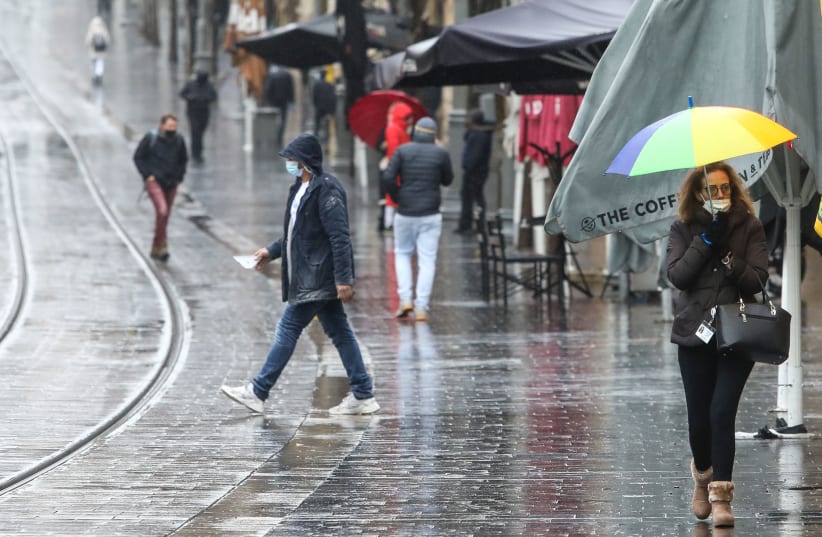Mount Hermon saw snowfall already due to the storm, as did the northern Golan Heights, and other hilltops in the north and center of the country that are over 900 meters high are expected to see snowfall as well.
There is still a concern over possible flooding throughout the day in the rivers in south and east Israel, and temperatures throughout the Jewish state will be far colder than usual.
From the afternoon, rain is expected to quiet and settle, and throughout the night it is expected to stop, although temperatures will still be particularly low.
Temperatures in Jerusalem will range from five degrees during the day to two during the night, in Tel Aviv from 14 during the day to eight at night, in Haifa from 13 daytime to six at night, and in Beersheba from 12 during the day to five at night.
The Water Authority reported that because of the strong rains, Lake Kinneret (the Sea of Galilee) rose on Tuesday by a staggering 4.5 centimeters. For the Kinneret to be full, it needs to rise an additional 105 centimeters (1.05 meters).
On Thursday, the weather is expected to be partly cloudy and clear, according to predictions by Rotternik. Temperatures are expected to rise, but they will nevertheless be below the normal. There is concern of frost in certain places throughout the country.
Friday is expected to be partly cloudy with another slight rise in temperatures. Strong winds are expected in the morning. Saturday is expected to be more of the same.
All temperatures mentioned in the article are in Celsius. This article was translated from The Jerusalem Post's sister publication, Maariv.
